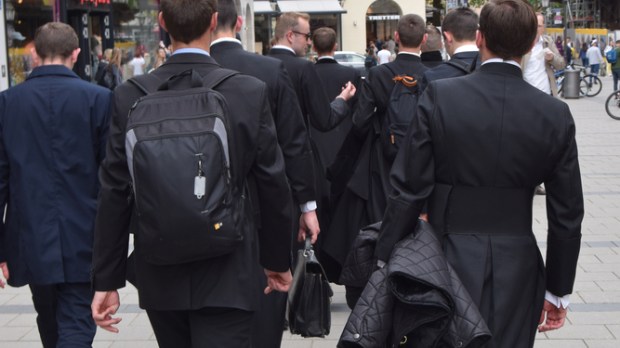Monday 18 July 2022
~
1. “Tradition is not a monument to be preserved, but a garden to be cultivated,” writes theologian Andrea Grillo
2. Should the Catholic Church scrap the requirement for priestly celibacy?
3. Atheism, the fastest growing “religion” in the United States
~
“Tradition is not a monument to be preserved, but a garden to be cultivated,” writes theologian Andrea Grillo
On the occasion of the first anniversary of Traditionis custodes, Italian academic Andrea Grillo, who teaches theology, liturgy and philosophy, welcomes Pope Francis’ reframing after the confusing situation created by the 2007 motu proprioSummorum Pontificum, “which had created almost ex nihilo the parallel coexistence of two ritual forms of the same Roman rite.” The attraction for the extraordinary rite had become a “criterion for promotion to the episcopate,” regrets Andrea Grillo, denouncing this “ritual parallelism” as “a theologically unfounded, ecclesiologically dangerous and liturgically destructive idea.” He therefore considers that Pope Francis was right in reframing the issue and emphasizing it again in the recent apostolic letter Desiderio desideravi. Tradition is not “a monument to be guarded, but a garden to be cultivated,” explains the Liturgy Professor. He believes that a liturgical formation that is “unitary, non-contradictory and spiritually non-destructive” is indispensable in seminaries, where formation in the two forms known as “ordinary” and “extraordinary” has sometimes created imbalances, which are then reflected in parishes, which become divided into two distinct communities according to liturgical sensitivities. These are then sometimes contradictory with regard to the decisions of the Second Vatican Council.
Munera, Italian
According to an opinion article in the British weekly, The Economist if the Catholics want to “reduce the scourge of sexual abuse by priests, they should demand an end to the rule requiring priestly celibacy.” “Catholic sex abuse involves not only bad apples, but a rotting orchard,” explains the article, citing how in France alone the number of victims was estimated at 216,000 in the 70 years to 2020. The article claims that many people do not join the priesthood because of the need to be celibate, but that pedophiles may feel drawn to this lifestyle, which does not involve the responsibility of a family, and that “the church has done a poor job of winnowing out those who pose a danger to their flock.” “If the church stopped requiring priests to be celibate (or male, for that matter), it could recruit from a much larger pool. If it also monitored them better and acted faster, fewer people would be abused,” the article concludes.
The Economist, English
Atheism, the fastest growing “religion” in the United States
“Not religious,” being “nones,” has become a specific American identity, notes an article in The Atlantic. If at the beginning of the 20th century, more than nine out of ten Americans claimed to believe in God and belong to an organized religion, by the early 1990s, the historical link between American identity and faith had broken down. The number of non-religious people has been rising ever since. The obvious question, then, is what happened around 1990? According to Christian Smith, Professor of Sociology and Religion at the University of Notre Dame, America’s non-religious craze is primarily the result of three historical events: the Republican Party’s association with the Christian Right, the end of the Cold War – when it “may have felt unpatriotic to confess one’s ambivalence toward God while the U.S. was locked in a geopolitical showdown with a godless Evil Empire” – and 9/11, which insinuated the idea that all religions were inherently destructive. In addition, scandals within the Catholic Church have accelerated its particularly rapid loss of moral stature. Thus, many “nones” are former Catholics. Yet, the author relativizes, a Christian background remains, as many young people may not be able to quote the Gospel of Matthew, but their economic and social policies are not so far from a certain reading of the beatitudes. Additionally, if religion is understood as a package deal, which includes a theory of the world, a community, a social identity, a means to peace and purpose, and a weekly routine, it is fair to say that millions of Americans have abandoned religion, only to recreate it everywhere they look.
The Atlantic, English

